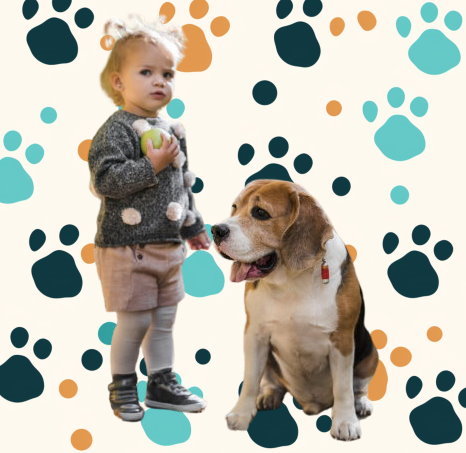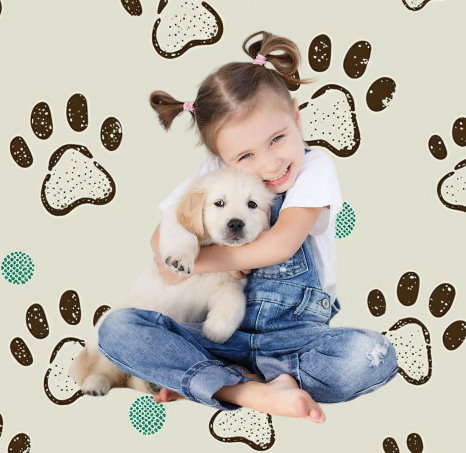Welcome to Dog Training Newbies !
Welcome to Dog Training Newbies !

Bringing a new puppy into your home is an exciting and joyful experience. As puppy parents, it is our responsibility to provide them with the best start in life, and one crucial aspect of their early development is socialization. Puppy socialization involves exposing young dogs to a wide range of experiences, people, animals, and environments, with the goal of helping them develop into confident and well-adjusted adult dogs. In this article, we explore the importance of puppy socialization, the critical periods for socialization, and practical strategies to ensure your puppy receives the best socialization experience possible.
THE IMPORTANCE OF PUPPY SOCIALIZATION
Puppy socialization plays a pivotal role in shaping a dog's behavior and temperament. Early positive experiences help puppies develop resilience, confidence, and adaptability, enabling them to navigate the world with ease. Socialization helps prevent behavior problems such as fearfulness, aggression, and anxiety, which can arise from a lack of exposure to various stimuli during critical developmental stages. By providing proper socialization, we can lay the foundation for a well-rounded, happy, and socially confident dog.
CRITICAL PERIODS FOR SOCIALIZATION
Puppies have critical periods of development during which they are most receptive to learning and social experiences. The primary socialization period typically occurs between 3 and 14 weeks of age when puppies are most open to new experiences. During this time, they are highly adaptable and less likely to develop fear or anxiety towards new stimuli. It is crucial to expose puppies to a variety of people, animals, sounds, environments, and situations during this critical period to help them develop positive associations and build resilience.
GRADUAL EXPOSURE TO STIMULI
When socializing your puppy, it is essential to introduce them gradually to different stimuli to prevent overwhelming or negative experiences. Start with low-intensity exposures, such as gentle interactions with friendly people and well-behaved dogs, and gradually increase the complexity and intensity of the stimuli as your puppy becomes more comfortable and confident. Positive reinforcement techniques, such as treats and praise, can help create positive associations with new experiences, reinforcing desired behaviors and building trust.


PEOPLE AND ANIMAL INTERACTIONS
Expose your puppy to a variety of people of different ages, appearances, and backgrounds. Encourage positive interactions with family members, friends, and strangers, ensuring that encounters are gentle, calm, and positive. Similarly, introduce your puppy to other well-socialized dogs in controlled environments, such as puppy classes or supervised playdates. These interactions help your puppy learn appropriate social skills, improve their communication abilities, and develop confidence around other animals.
ENVIRONMENTS AND SENSORY EXPERIENCES
Expose your puppy to various environments, both indoors and outdoors, to help them become comfortable and adaptable in different settings. Introduce them to different surfaces, sounds, sights, and smells, such as grass, concrete, car rides, household appliances, and outdoor noises. Gradually expose them to new experiences, such as walking on different surfaces or encountering unfamiliar objects, while providing reassurance and positive reinforcement. This exposure helps your puppy become more resilient, adaptable, and less prone to fear or anxiety in new environments.
TRAINING AND POSITIVE REINFORCEMENT
Incorporate basic obedience training into your puppy's socialization routine. Teach them essential commands like "sit," "stay," and "come," using positive reinforcement methods. Training sessions provide mental stimulation, establish boundaries, and strengthen the bond between you and your puppy. It also helps your puppy develop self-control, focus, and good manners, enhancing their overall socialization experience.
Puppy socialization is a critical component of raising a confident and well-adjusted dog. By exposing puppies to a wide range of experiences, people, animals, and environments during their critical developmental periods, we set them up for a lifetime of success. Gradual exposure, positive reinforcement, and early training form the building blocks of a positive socialization experience. As responsible puppy parents, we have the power to shape our puppies' futures and provide them with the tools they need to navigate the world with confidence, resilience, and a zest for life.